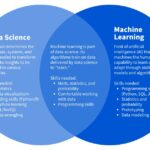Do you struggle to retain information and perform well on exams? Many students find that traditional study methods, like rereading notes, are ineffective. This article explores proven strategies to help you learn smarter, not harder, and ace your exams. We’ll delve into active recall techniques, the importance of spaced repetition, and how to create a productive study environment.
Active Studying: Ditch the Rereading
Passive rereading often leads to quick forgetting. Effective learning requires active engagement with the material. This involves connecting concepts, generating examples, and actively participating in the learning process.
Instead of passively rereading, try these active study techniques:
- Teach Someone Else: Explain the material aloud as if you’re teaching it to a class. This forces you to organize your thoughts and identify knowledge gaps.
- Create Practice Questions: Develop questions and answers based on the material. This simulates exam conditions and reinforces learning.
- Use Concept Maps: Visualize connections between concepts using diagrams or mind maps. This helps you see the bigger picture and understand relationships.
- Work Through Problems: For technical subjects, actively solve problems and explain the steps involved. Don’t just passively look at solutions.
Spaced Repetition: The Key to Long-Term Retention
Cramming before an exam is rarely effective for long-term retention. Spaced repetition, distributing your study sessions over time, is far more powerful. Review material at increasing intervals to solidify your understanding.
- Short, Frequent Study Sessions: Instead of marathon study sessions, opt for shorter, focused bursts of studying spread out over days or weeks.
- Review Regularly: Don’t just learn the material once. Review it periodically, even after you think you’ve mastered it.
- Use Flashcards: Flashcards are an excellent tool for spaced repetition. Review cards at increasing intervals based on your mastery level.
Optimize Your Study Environment
Your study environment significantly impacts your focus and productivity.
- Minimize Distractions: Turn off your phone, close unnecessary tabs on your computer, and find a quiet space where you can concentrate.
- Find Your Ideal Setting: Experiment with different study locations. Some people thrive in quiet libraries, while others prefer bustling coffee shops. Discover what works best for you.
- Background Noise: Some students find that background noise, like instrumental music, enhances focus. Experiment to see if it helps you.
Utilize All Available Resources
Don’t hesitate to seek help when needed. Utilize resources like academic advisors, tutoring services, and study groups. Collaborating with peers can provide valuable insights and support.
Conclusion: Study Smarter, Score Higher
Effective exam preparation requires more than just memorization. By incorporating active learning strategies, spaced repetition, and a productive study environment, you can significantly improve your understanding and retention of information. Remember to utilize available resources and seek help when needed. With the right approach, you can achieve exam success and master any subject.
